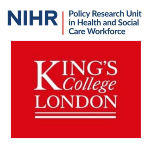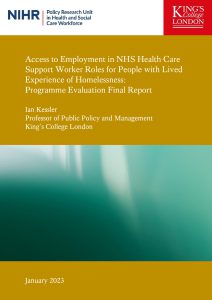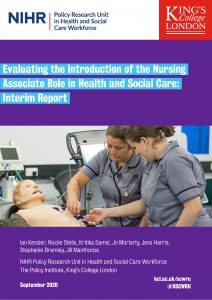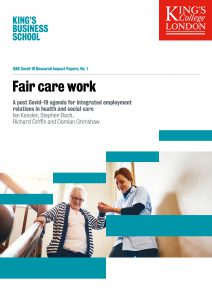Prof Ian Kessler of the NIHR Policy Research Unit in Health and Social Care Workforce is Professor of Public Policy and Management at King’s Business School. He introduces a new report from the Unit, scoping the demand and supply of NHS therapists for Children and Young People with Special Educational Needs and Disabilities.
This, the second of two blogs, focuses on the supply of, while the first addressed the demand for, therapists for children and young people with Special Educational Needs and Disabilities.
The Supply Side
Commissioning. While the capacity to address this increased demand rests in large part on the scale, structure, and capabilities of the therapy and, as already implied, the wider health and care workforce, the commissioning process for CPY with SEND, is pivotal. Commissioning determines the services available and at what level of resource, inevitably feeding through to determine the workforce required to provide them: to put it crudely, if a service is not commissioned, a workforce is not required. The close connection between service design and the workforce is apparent from various ‘good practice’ commissioning models [1]. These typically distinguish different levels of services linked to the nature of need and support, with implications for the requisite workforce: for example, accessible universal services delivered by a wider workforce; targeted services provided by registered therapists and their support co-workers; and specialist services the exclusive preserve of the registered therapist. Continue reading

 In the context of ongoing challenges to the recruitment, retention, and motivation of around three million staff employed in health and social care, the NIHR Policy Research Unit in Health and Social Care Workforce in the Policy Institute at King’s College London (KCL) has announced its programme of work as it sets out on its next five years (2024-28).
In the context of ongoing challenges to the recruitment, retention, and motivation of around three million staff employed in health and social care, the NIHR Policy Research Unit in Health and Social Care Workforce in the Policy Institute at King’s College London (KCL) has announced its programme of work as it sets out on its next five years (2024-28).

